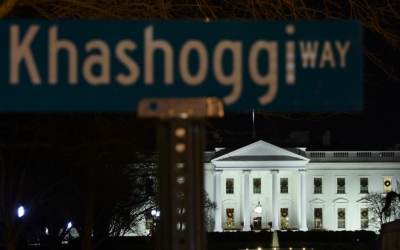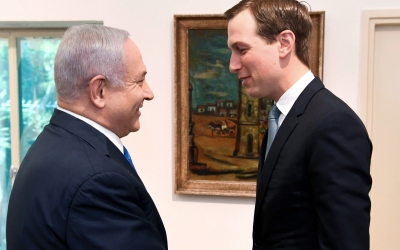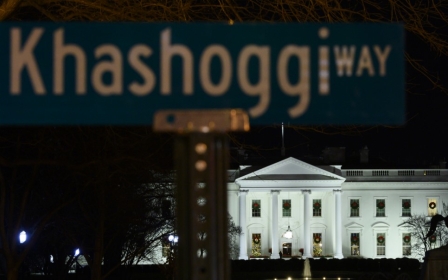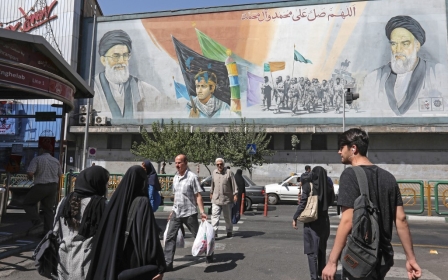Trump was prepared to back Israeli military action against Iran, claims Bolton
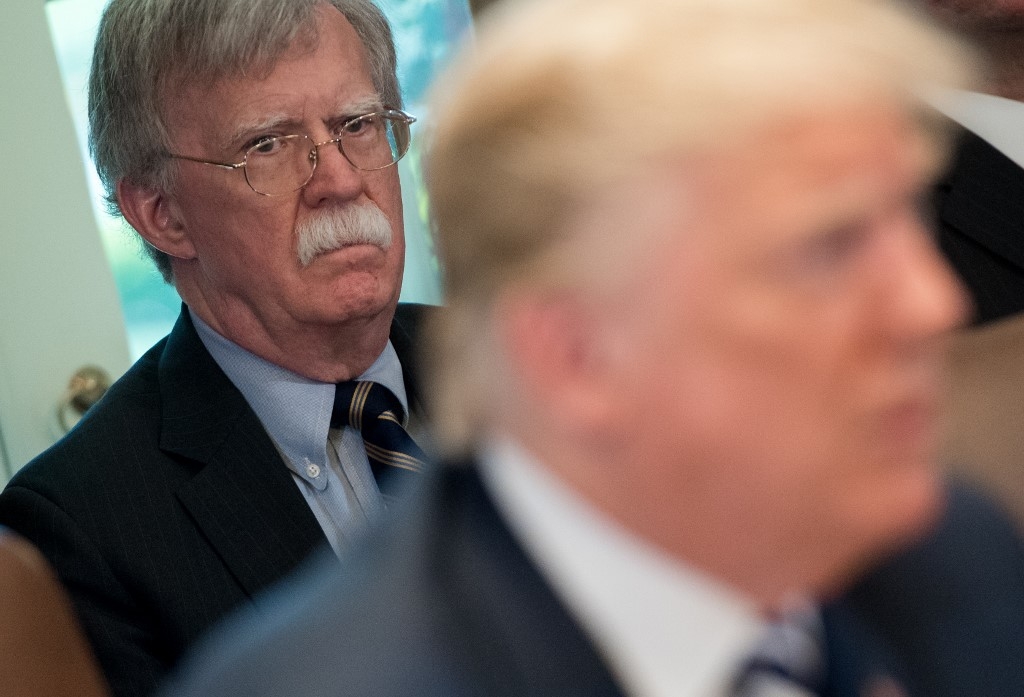
Former US national security adviser John Bolton has said that President Donald Trump was prepared to back Israeli strikes against Iran, according to excerpts from his telling new book The Room Where It Happened.
According to the book, which is scheduled to be released on Tuesday, Bolton told Trump in 2017, a year before the US unilaterally withdrew from the landmark Iran nuclear deal - the Joint Comprehensive Plan of Action (JCPOA) - that the White House should use "force" against the Islamic republic.
Established in 2015 under the Obama administration, the JCPOA saw Iran curb its nuclear programme in exchange for the lifting of the international sanctions that had crippled its economy.
On 8 May 2018, Trump abandoned the deal and less than two weeks later signed a presidential memorandum ending all American commitments to the deal, unraveling the signature foreign policy achievement of his predecessor.
"On Iran, I urged [Trump] that he press ahead to withdraw from the nuclear agreement and explained why the use of force against Iran's nuclear programme might be the only lasting solution," writes Bolton in the book.
Though Bolton did not mention Israel using force, Trump responded by saying that he would support Prime Minister Benjamin Netanyahu in doing so.
"'You tell Bibi that if he uses force, I will back him. I told him that, but you tell him again,' Trump said, unprompted by me," writes Bolton.
Bolton, an Iran hawk who has served in every Republican administration since Ronald Reagan, was sacked by Trump last September. His hardline views on Iran had garnered significant media attention amid a surge in tensions between Washington and Tehran.
Bolton also notes in his memoir that in an October 2018 meeting in the Kremlin, Russian President Vladimir Putin doubted Israel's abilities to attack Iran.
"Israel, he said, could not conduct military action against Iran alone because it didn't have the resources or capabilities, especially if the Arabs united behind Iran, which was preposterous," Bolton wrote.
Putin also questioned whether the US withdrawing from the Iran nuclear deal was productive, but Bolton told him: "Iran was not in compliance with the deal, noted the connection between Iran and North Korea on the reactor in Syria the Israelis had destroyed in 2007 and said we were carefully watching for evidence the two proliferators were cooperating even now. In any event, reimposing sanctions on Iran had already taken a heavy toll, both domestically and in terms of their international troublemaking."
Kushner blocked calls to Trump
Bolton also outlines the events of the G7 conference last year, where Iranian Foreign Minister Mohammad Javad Zarif made a surprise visit to meet with French President Emmanuel Macron.
The former national security adviser noted that while both he and Netanyahu opposed the visit, Trump's senior adviser, and son-in-law, Jared Kushner did not.
Bolton writes that Kushner blocked a call from the Israeli prime minister to Trump in which Netanyahu was attempting to convince the president against a summit with the Iranian foreign minister.
Bolton writes: "By then I had an email from Pompeo, who had again spoken to Netanyahu. Netanyahu had heard about the possible Zarif meeting and was pressing to call Trump at five thirty p.m. Biarritz time (a city in France), which was fast approaching."
"On Trump's floor, I found [Mick] Mulvaney (former acting White House Chief of Staff) and Kushner. Kushner was on the phone to David Friedman, US Ambassador to Israel, telling Friedman that he was not going to allow Netanyahu's call to go through.
"When he hung up, Kushner explained he had stopped this and an earlier effort by Netanyahu because he didn't think it was appropriate for a foreign leader to talk to Trump about whom he should speak to."
Bolton told Trump that he thought meeting Zarif was a bad idea, in part because "once we took the pressure off Iran, it would be very hard to put it back on". Kushner, however, thought there was nothing to lose in meeting Zarif.
"These people had an attention span no longer than the deal in front of them," Bolton writes about Kushner.
Though Trump did not meet with Zarif, Bolton was concerned that Kushner or Secretary of the Treasury Steven Mnuchin may have met with Zarif, adding that "this latter hypothesis was something that I believed agitated and worried senior Israeli officials, and which of course made Pompeo livid".
Bolton later writes in the book that Trump had wanted to speak with Zarif, as well as others, including Iranian President Hassan Rouhani and Putin.
He writes: "Trump often complained that people all over the world wanted to talk to him, but somehow they never got through. So not surprisingly, he eventually began musing about opening discussions with Iran. That country's Foreign Minister, Javad Zarif, gave a series of interviews in New York saying Trump wanted to talk, but that Bibi Netanyahu, Saudi Crown Prince Mohammed bin Salman, and I were trying instead to overthrow the ayatollahs' regime. If only."
"What he couldn't accept was that these adversaries wanted to talk to him to get a better deal than by negotiating with his troublesome advisers. I figured I'd tell Trump that the day I walked out the door, which was getting closer."
Middle East Eye propose une couverture et une analyse indépendantes et incomparables du Moyen-Orient, de l’Afrique du Nord et d’autres régions du monde. Pour en savoir plus sur la reprise de ce contenu et les frais qui s’appliquent, veuillez remplir ce formulaire [en anglais]. Pour en savoir plus sur MEE, cliquez ici [en anglais].


